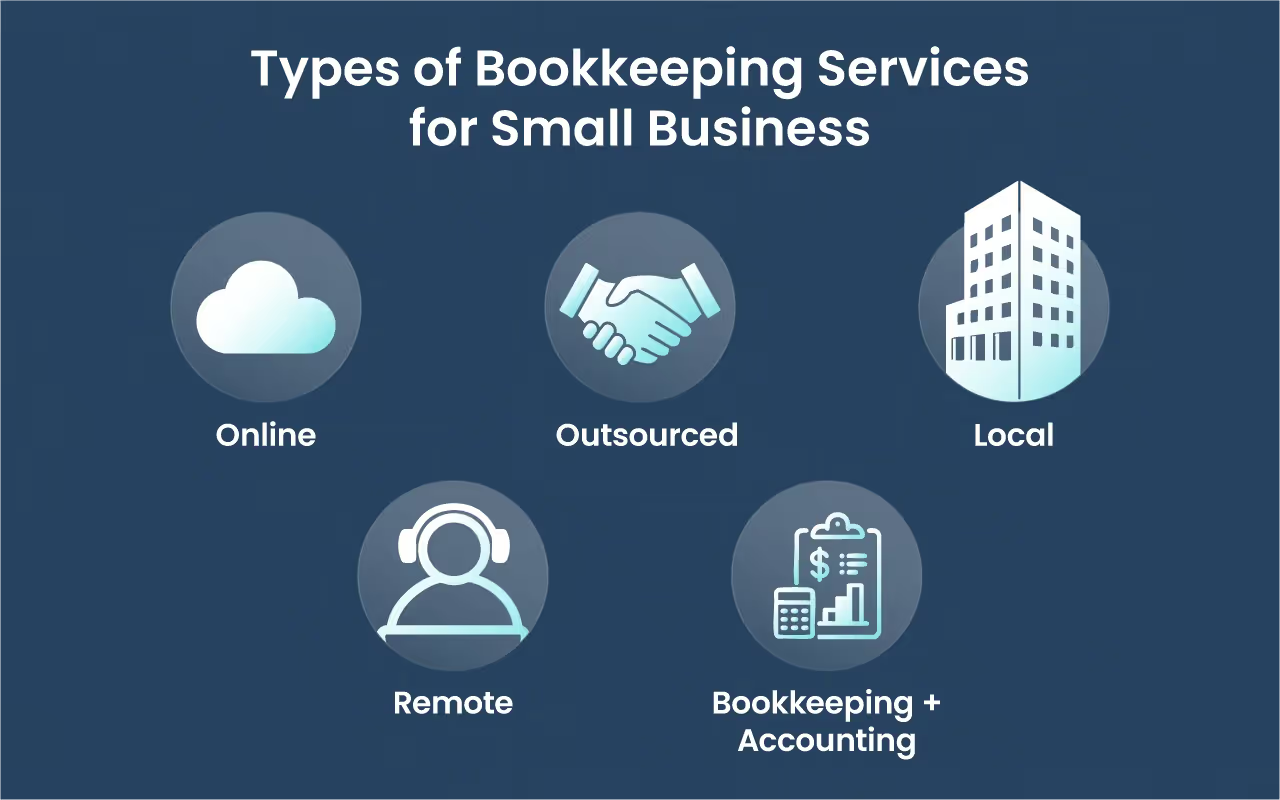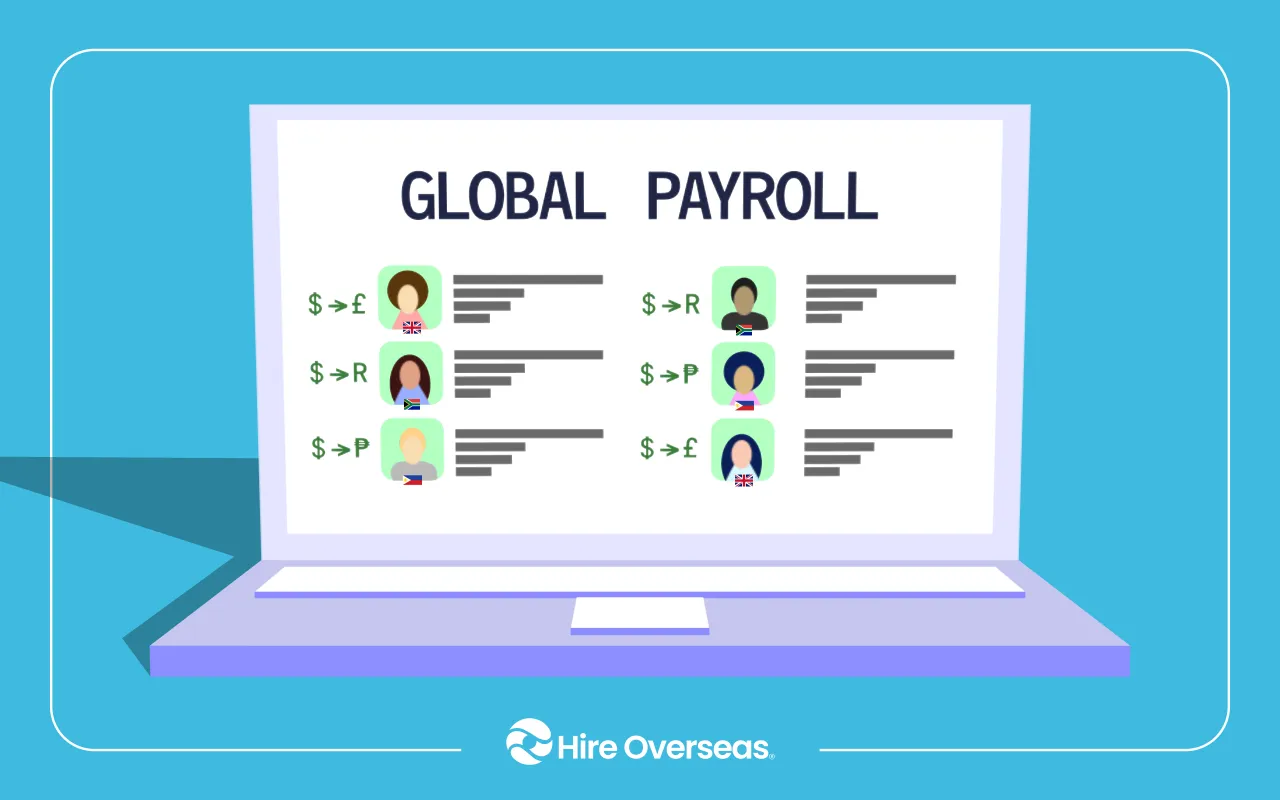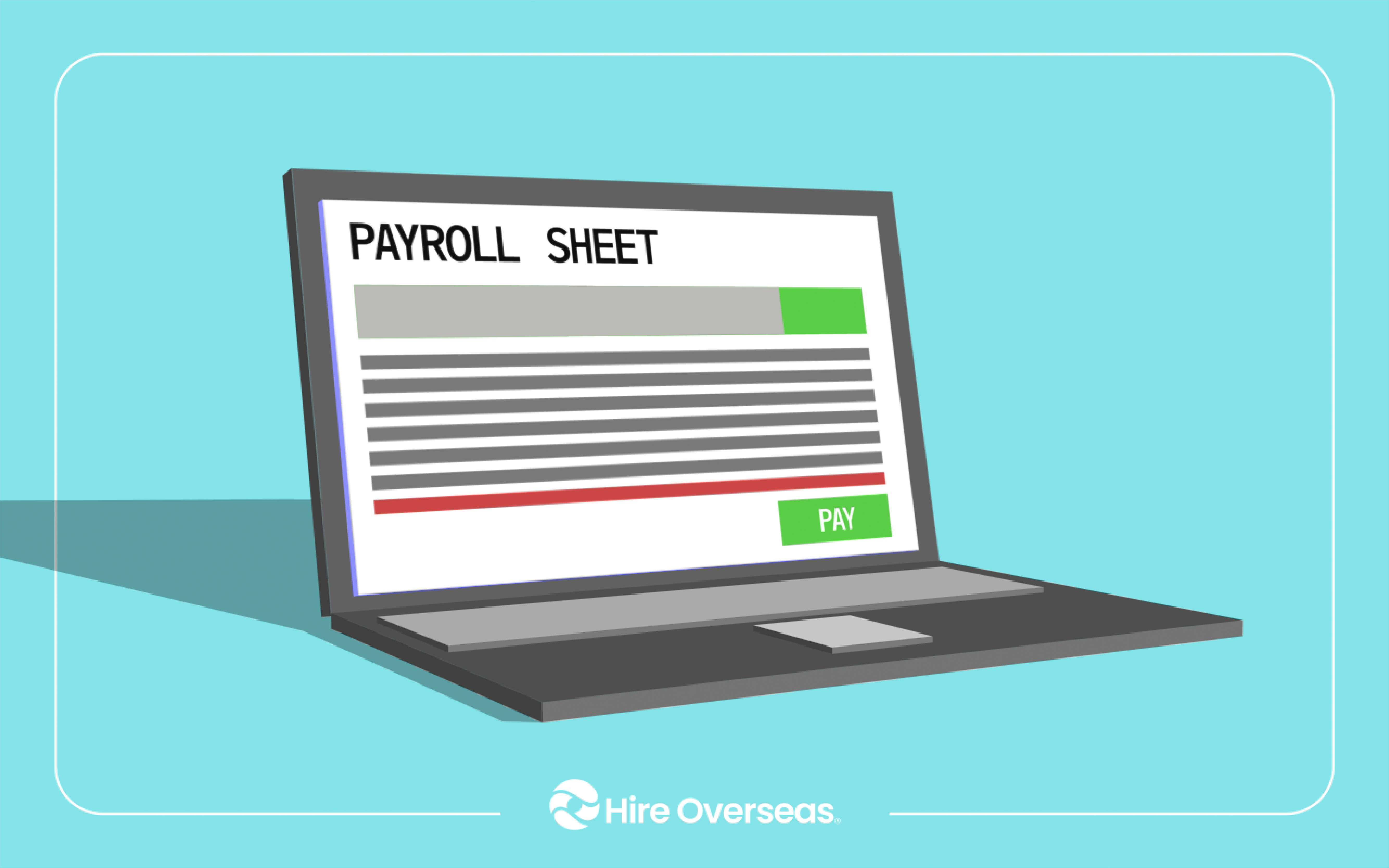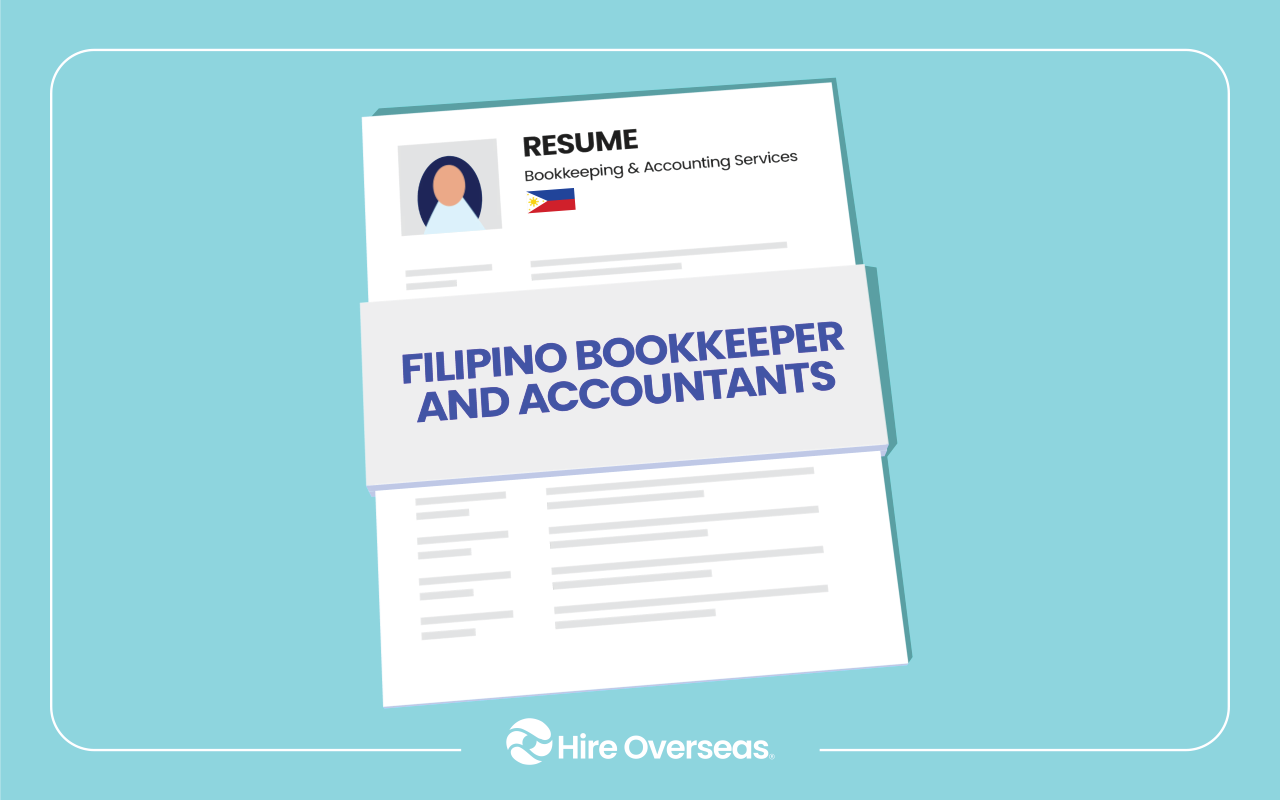Bookkeeping Services for Small Business: A 2025 Playbook

Managing a small business is no easy task—you’re balancing sales, customer service, marketing, and more, all while keeping your finances in order. Yet bookkeeping often gets pushed to the back burner until tax deadlines or cash flow issues appear. The truth is, bookkeeping services for small business aren’t just about compliance, they’re about creating clarity, preventing costly mistakes, and setting the stage for growth. Whether you’re considering online bookkeeping services, outsourcing, or hiring a dedicated professional, understanding your options can help you save time, reduce stress, and keep your business on track. This guide will walk you through everything you need to know.
Why Bookkeeping Services Are Essential for Small Businesses
For many entrepreneurs, bookkeeping may seem like a back-office task that can be postponed. But in reality, it’s one of the most critical functions for long-term business success. Partnering with bookkeeping services for small businesses gives you more than just tidy spreadsheets—it gives you clarity, confidence, and control over your cash flow.
Here’s why it matters:
1. Save Time on Bookkeeping
The average small business owner spends over 80 hours a year on bookkeeping. That’s two full work weeks lost to balancing ledgers, chasing receipts, and reconciling accounts. By working with outsourced bookkeeping services for small business or using remote bookkeeping services, you reclaim that time to focus on sales, customer service, and growth initiatives instead of spreadsheets.
2. Maintain Accurate Financial Records
Even one mistake in your books can snowball into costly errors. A professional bookkeeper ensures your accounts are updated weekly—or even daily—so you always have accurate financial records. With this, you’ll know exactly how much cash is available, which products or services are most profitable, and when it’s time to scale operations. Investors and lenders also view updated books as a sign of reliability, making it easier to secure funding.
3. Avoid Tax Penalties
The IRS collected billions in small business tax penalties last year—much of it due to late filings or missing documentation. A certified bookkeeper for small business ensures your taxes are accurate and filed on time. They’ll also track deductible expenses (like office supplies, travel, or software subscriptions), helping you maximize savings while avoiding tax penalties.
4. Streamline Small Business Finances
Modern platforms like QuickBooks bookkeeping services and Xero bookkeeping for small business can automate invoicing, payroll, and expense tracking. But the real benefit comes when these systems are configured by a pro. A bookkeeper ensures your software integrates seamlessly with your bank accounts, POS systems, and payroll—creating a streamlined small business finance workflow that saves you hours every month.
In short: bookkeeping is not just about compliance—it’s a growth strategy. With a dedicated bookkeeping and accounting service for small business, you’ll gain real-time visibility into your cash flow, control costs more effectively, and confidently plan for the future.
Types of Bookkeeping Services for Small Business

Not all bookkeeping solutions are created equal. The best option for your business depends on your budget, goals, and whether you prefer hands-on control or professional support. Below are the most common types of bookkeeping services for small businesses, explained in detail.
1. Online Bookkeeping Services for Small Business
Cloud-based bookkeeping has revolutionized how entrepreneurs manage their finances. Platforms like QuickBooks bookkeeping services and Xero bookkeeping for small business give you real-time access to your financial data from any device. These tools often integrate with invoicing, payroll, and tax software, helping you:
- Automatically sync bank transactions.
- Generate instant financial reports.
- Track income and expenses in real time.
- Share data easily with your accountant or tax preparer.
For tech-savvy business owners, this option offers affordability and flexibility, though it still requires you (or a bookkeeper) to manage entries correctly.
2. Outsource Bookkeeping Services for Small Business
Hiring a full-time in-house bookkeeper can be expensive, especially for small businesses. By choosing to outsource bookkeeping services for small business, you get access to a certified bookkeeper for small business without paying for salaries, benefits, or training. Outsourcing offers:
- Cost savings compared to in-house staff.
- Expertise in compliance, tax law, and industry-specific bookkeeping.
- Scalability—you can add or reduce services as your business grows.
This is ideal for startups or growing companies that need flexibility and want to focus on business growth instead of managing books.
3. Local Bookkeeping for Small Businesses
Some business owners prefer face-to-face interactions with a professional bookkeeper. Searching for bookkeeping services for small businesses near me or bookkeeping services in my area can connect you with providers who understand state and local tax requirements. Local bookkeeping services can be especially helpful for:
- Brick-and-mortar businesses needing in-person support.
- Companies dealing with complex local tax regulations.
- Owners who value long-term, personal relationships with their bookkeeper.
While convenient, local services may come at a higher cost compared to remote or online options.
4. Remote Bookkeeping Services
Thanks to technology, location is no longer a barrier. Many U.S.-based bookkeeping companies now provide remote bookkeeping services, meaning you can work with skilled professionals regardless of where your business is located. Benefits include:
- Lower costs compared to local, in-person providers.
- Access to specialized talent across the U.S.
- Easy communication through secure portals, video calls, and cloud platforms.
Remote services are best for entrepreneurs who want flexibility without sacrificing professional expertise.
5. Bookkeeping and Accounting Services for Small Business
While bookkeeping focuses on recording financial data, accounting takes things further by analyzing it. Some firms offer bundled bookkeeping and accounting services for small business, which can include:
- Tax preparation and filing.
- Budgeting and financial forecasting.
- Business advisory services.
- Audit support and compliance guidance.
This comprehensive approach helps you not just keep accurate books, but also make smarter financial decisions.
6. Bookkeeping and Payroll Services for Small Business
Managing payroll can be one of the most stressful tasks for small business owners. Providers that combine bookkeeping and payroll services for small business offer a seamless solution where your employees get paid accurately and on time, while all related tax filings are handled. These services help you:
- Automate employee payroll and tax withholdings.
- Stay compliant with federal and state labor laws.
- Track labor costs alongside other business expenses.
This bundled option is especially valuable for businesses with growing teams that want to streamline small business finances.
Comparison of Bookkeeping Services for Small Business
How Much Does Bookkeeping Cost for Small Businesses?
The cost of bookkeeping services for small businesses can vary widely—ranging from affordable DIY options to more comprehensive full-service packages. Here's a breakdown to help you budget wisely:
DIY Software (QuickBooks, Xero, etc.)
- Subscription-based platforms such as QuickBooks Online or Xero typically cost under $50/month for the basic tiers.
- You still manage the entries yourself so be prepared to invest your own time.
Freelance or Part-Time Bookkeeper
- Hourly rates generally range from $25–$55/hour.
- The U.S. Bureau of Labor Statistics notes a median bookkeeper rate of around $22.80/hour—freelancers often charge higher.
Monthly Subscription or Outsourced Bookkeeping
- Flat monthly packages typically fall between $250–$900/month, depending on complexity.
- Basic services go for $250–$350, mid-tier up to $700, and premium plans can exceed $1,000/month.
- Some estimates show a broader range—$300–$2,500/month, depending on scale and service depth.
In-House Full-Time Bookkeeper
- Expected annual salary: $35,000–$60,000, not including benefits like insurance or equipment.
- Monthly cost equates to approximately $3,000–$5,000/month, plus overhead.
Source: Bookkeeping Prices for Small Business: What to Expect in 2025
Hire Overseas: Dedicated Remote Bookkeepers
A growing alternative is to partner with Hire Overseas, where dedicated certified bookkeepers for small business start at $2,000/month. Unlike subscription packages, this option gives you a full-time professional without the high costs of hiring locally. Services include bookkeeping, payroll, tax preparation assistance, and compliance support—all delivered remotely by U.S.-trained, English-speaking staff.
This makes Hire Overseas a middle ground between outsourced firms and an in-house hire—ideal for small businesses that want expert-level support at a fraction of U.S. salary costs.
Curious about how outsourcing bookkeeping really works? Check out our detailed article on bookkeeping outsourcing strategies.
Comparison of Bookkeeping Costs for Small Businesses
How to Choose the Best Bookkeeping Services for Your Business
Not all bookkeeping providers are created equal. The right partner can help you maintain accurate financial records, avoid tax penalties, and free up your time to focus on business growth but the wrong choice can leave you with costly mistakes and added stress. Here are the key factors to consider when evaluating bookkeeping services for small business:
1. Certified Bookkeepers with Proven Experience
Always check credentials. A certified bookkeeper for small business brings industry-recognized training and experience, ensuring compliance with tax laws and best practices. Beyond certifications, look for proven experience in your industry—whether that’s retail, e-commerce, healthcare, or professional services. The more familiar they are with your sector, the smoother your financial management will be.
2. Integration with Your Preferred Tools
Your bookkeeper should work with the tools you already use. Popular platforms like QuickBooks bookkeeping services and Xero bookkeeping for small business streamline financial management, but only if your provider knows how to leverage them effectively. Ask whether they can integrate with your payroll software, invoicing systems, or industry-specific platforms to create a seamless workflow.
3. Transparent Pricing That Fits Your Budget
The cost of bookkeeping services for small businesses can range from DIY software to full-service outsourced teams. Look for providers that clearly outline what’s included in their packages—monthly reconciliations, payroll, tax prep, or advisory services—so you can avoid hidden fees. A good provider will help you balance affordability with expertise, ensuring you get the most value for your investment.
4. Flexible Service Options
Every small business has unique needs. Some may benefit from a part-time bookkeeper for hire to handle light transactions, while others may need a full-service team to manage payroll, compliance, and reporting. The best providers offer flexibility—so you can scale services up or down as your business grows.
5. Strong Customer Support
Whether you’re working with local bookkeeping for small businesses or remote bookkeeping services, responsive support is crucial. Ask how you’ll be able to reach your bookkeeper—phone, email, or chat—and what their response times are like. Good communication ensures issues are resolved quickly and you never feel left in the dark about your finances.
The bottom line: the best bookkeeping services for small business will feel like an extension of your team—providing expertise, transparency, and flexibility while helping you streamline your finances and focus on business growth.
Should You Hire Locally or Remotely?
One of the biggest decisions small business owners face when choosing bookkeeping services for small business is whether to hire locally or work with a remote provider. Both options have unique advantages—and the right choice often depends on your priorities, budget, and working style.
Local Bookkeeping for Small Businesses
If you’re the type of business owner who values face-to-face interaction, a local bookkeeping service may be the best fit. Meeting in person can foster stronger relationships, build trust, and allow your bookkeeper to better understand the nuances of your operations. Local bookkeepers also have:
- In-depth knowledge of regional tax laws and regulations, which can be a major advantage during tax season.
- The ability to visit your office for on-site support, audits, or hands-on assistance.
- Stronger opportunities for long-term collaboration, especially if you prefer building personal connections with service providers.
However, local services often come with higher costs compared to remote alternatives, and your options may be limited depending on your location.
Remote Bookkeeping Services
With the rise of cloud accounting tools like QuickBooks and Xero bookkeeping for small business, hiring a remote bookkeeping service has become easier than ever. Remote providers—especially U.S.-based bookkeeping companies—offer:
- Lower costs compared to hiring locally or in-house.
- Access to specialized talent across the country (or even globally), not just within your city.
- Scalability and flexibility, with the ability to increase or reduce services as your business grows.
- Convenient, 24/7 access to your financial records, thanks to secure cloud platforms.
Which Should You Choose?
If you run a brick-and-mortar business with complex state or local tax requirements, or you value face-to-face relationships, local bookkeeping might be the right fit.
If you want flexibility, affordability, and access to a broader pool of professional bookkeepers, remote bookkeeping services—especially solutions like Hire Overseas—are likely the smarter choice.
Take Control of Your Small Business Finances
Bookkeeping may not be the flashiest part of entrepreneurship, but it’s one of the most transformative. The right partner doesn’t just keep your books balanced—they help you save time, maintain accurate financial records, and avoid costly tax penalties. More importantly, they free you up to focus on what truly drives success: growing your business.
If you’re ready to cut overhead costs, streamline operations, and gain peace of mind, now is the time to act.
Book a free demo with Hire Overseas and see how a dedicated bookkeeping professional can become a trusted extension of your team.
FAQs about Bookkeeping Services For Small Business
What’s the difference between a bookkeeper and an accountant for small businesses?
A bookkeeper handles the day-to-day financial records—like tracking income, expenses, and reconciliations—while an accountant interprets that data to provide financial strategy, tax planning, and forecasting. Many small businesses use bookkeeping services alongside accounting support for complete financial management.
When should a small business hire bookkeeping services?
If you’re spending more than a few hours a week on your books, struggling with cash flow visibility, or worried about tax season, it’s time to consider professional bookkeeping. Early adoption prevents costly errors and gives you accurate insights to make better business decisions.
Can bookkeeping services integrate with my existing tools and software?
Yes. Most providers are experienced with platforms like QuickBooks, Xero, FreshBooks, or even industry-specific software. Many bookkeeping services also set up integrations with payment processors, payroll systems, and CRMs so your financial data flows automatically and accurately.
Are bookkeeping services secure for small businesses?
Reputable bookkeeping providers use encrypted software, secure portals, and strict access controls to protect sensitive financial information. Always ask about their data security policies and compliance standards before hiring.
Do bookkeeping services help with audits or loan applications?
Yes. Accurate, up-to-date books make it much easier to prepare for an IRS audit, secure financing, or attract investors. Bookkeeping services can quickly generate financial reports, provide supporting documentation, and ensure compliance with regulations.
What industries benefit most from small business bookkeeping services?
All industries—from retail and e-commerce to healthcare and professional services—benefit from bookkeeping support. Specialized providers may also understand unique compliance needs, like HIPAA for healthcare or sales tax for e-commerce.
Unlock Global Talent with Ease
Hire Overseas streamlines your hiring process from start to finish, connecting you with top global talent.
Unlock Global Talent with Ease
Hire Overseas streamlines your hiring process from start to finish, connecting you with top global talent.




